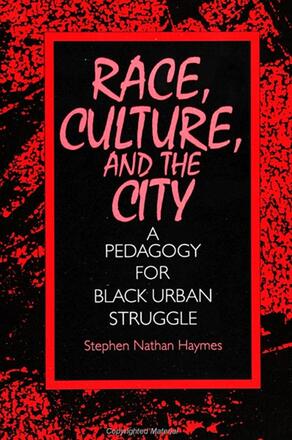
Race, Culture, and the City
A Pedagogy for Black Urban Struggle
Alternative formats available from:
This book proposes a pedagogy of black urban struggle and solidarity.
Description
The author argues that "race" as a social construction is one of the most powerful categories for constructing urban mythologies about blacks, and that this is significant in a dominant white supremacist culture that equates blackness and black people with both danger and the exotic. The book examines how these myths are realized in the material landscapes of the city, in its racialization of black residential space through the imagery of racial segregation. This imagery along with the racializing of crime portrays black residential space as natural "spaces of pathology," and in need of social control through policing and residential dispersion and displacement.
It is in this context that Haymes proposes the development of a pedagogy of black urban struggle that incorporates critical pedagogy.
Stephen Nathan Haymes is Assistant Professor in the Social and Historical Foundations Program in the School of Education at DePaul University.
Reviews
"This is the first time any writer has combined the discussion of the formation of culture and consciousness in the Black community with an analysis of urban restructuring. This book makes an important contribution to the growing body of literature in cultural studies and demonstrates the usefulness of integrating the work of geographers, planners, and sociologists who focus on spatial issues. This interdisciplinary approach provides a new foundation for the discussion of social movements.
"Nowhere in the literature on Black social movements is there a recognition of the dialectical interplay of space/place and consciousness. This book breaks new ground and elevates the discussion of the Black urban experience to new intellectual heights. It offers an alternative perspective on race relations in the United States and, most important, it provides a critique of the culture of poverty analysis of the Black urban experience and thereby debunks notions of a self generating underclass. " — Cynthia Hamilton, University of Rhode Island